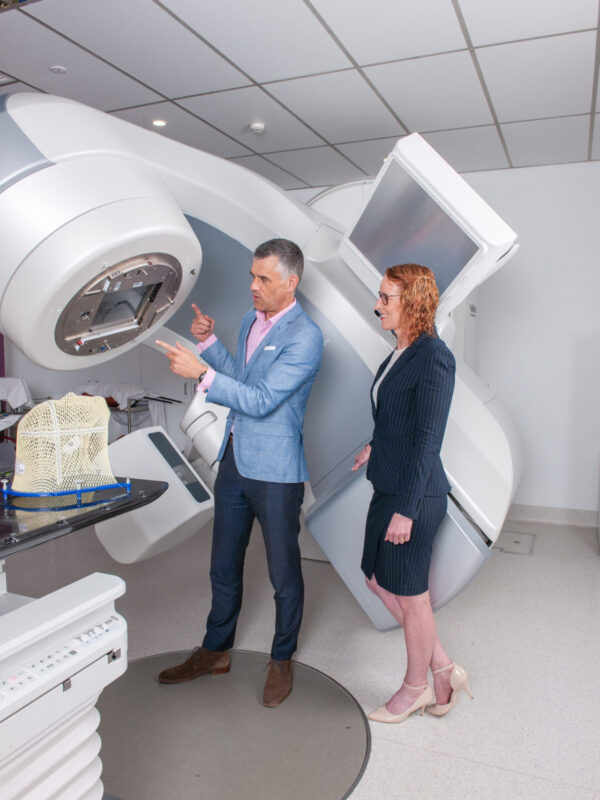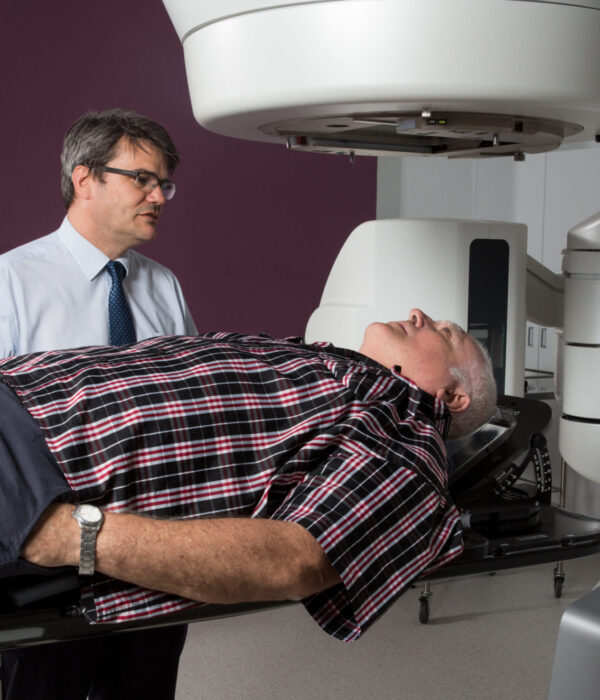For over thirty years, TROG Cancer Research has been leading ground-breaking clinical trials in the hope of improving treatment outcomes for people impacted by cancers, including breast cancer trials.
While the goal is to achieve a cure, breast cancer trials are contributing to a greater understanding of effective treatments for patients today and for generations to come.
Two things make these trials possible – the willingness of those impacted by breast cancer to consider taking part in a cancer clinical trial and the generosity of donors contributing financially to establishing trials.
If you or a loved one has been impacted by a recent breast cancer diagnosis, let’s fight the disease together.

Our clinical trials on breast cancer generally involve testing new treatments and finding ways to improve current treatments to help improve survival rates and quality of life for people with breast cancer. Using radiation therapy, we’ve uncovered improvements to treatment protocols that have led to significant benefits to breast cancer patients today and in the future.
Be informed of the type of breast cancer clinical trials that are recruiting for participants by viewing the below trials.

The landmark TROG 03.05 MA.20 trial showed that after breast cancer surgery, treatment of both the lymph nodes and the breast with radiation therapy can increase the time women remain cancer-free.
For more than 10 years researchers monitored 1,832 women with breast cancer that had spread to the lymph nodes; 82 per cent of the women who received radiation therapy to the breast and lymph nodes were free of cancer, compared to 77 per cent of women who received radiation therapy to the breast only.
This large international trial showed that lymph node radiation therapy not only reduced the likelihood of cancer coming back in the lymph nodes 10 years later, it also decreased the risk of cancer coming back in the other parts of the body, such as the liver and lungs.
Ductal carcinoma in situ (DCIS) of the breast is characterised by abnormal cells in the milk ducts which have not spread into the breast tissue.
An international study (BIG 3-07/TROG 07.01) shows that after breast-conserving surgery, higher radiation doses to the part of the breast where the DCIS was found, in addition to radiation therapy of the whole breast, significantly reduced its risk of returning in patients with higher-risk DCIS. Compared to five weeks of whole breast radiation therapy, the study also shows that the shorter, more convenient three weeks of radiation therapy did not increase recurrence.
Today, DCIS affects women all around the world. The results of the study will likely have a significant impact on how patients with DCIS are best managed worldwide.
One in three Australians will be diagnosed with cancer and donations are vital in ensuring TROG Cancer Research continues to produce and support quality clinical cancer research. Our cancer trials save lives and change lives, but we need your help.
All donations of $2.00 and over are fully tax-deductible and you will receive a receipt from TROG Cancer Research. The most convenient way to donate to TROG Cancer Research is to make a secure online donation today.
For over 30 years, Trans-Tasman Radiation Oncology Group has been dedicated to improving the way radiation medicine is delivered to cancer patients with ongoing scientific research, clinical trials, and cutting-edge technology.
Latest News
Keep up to date with TROG news, subscribe to our community newsletter.
ABN: 45 132 672 292